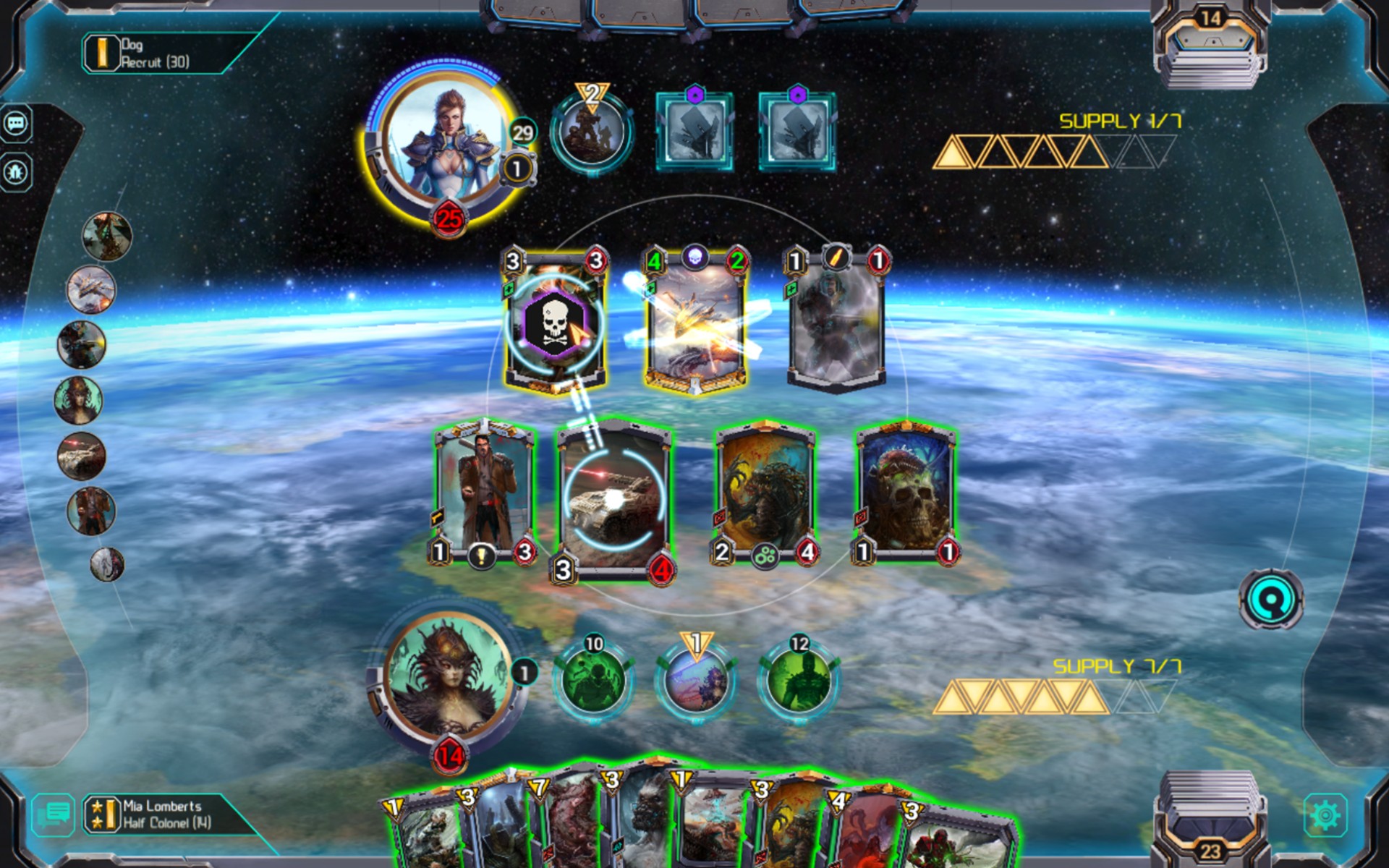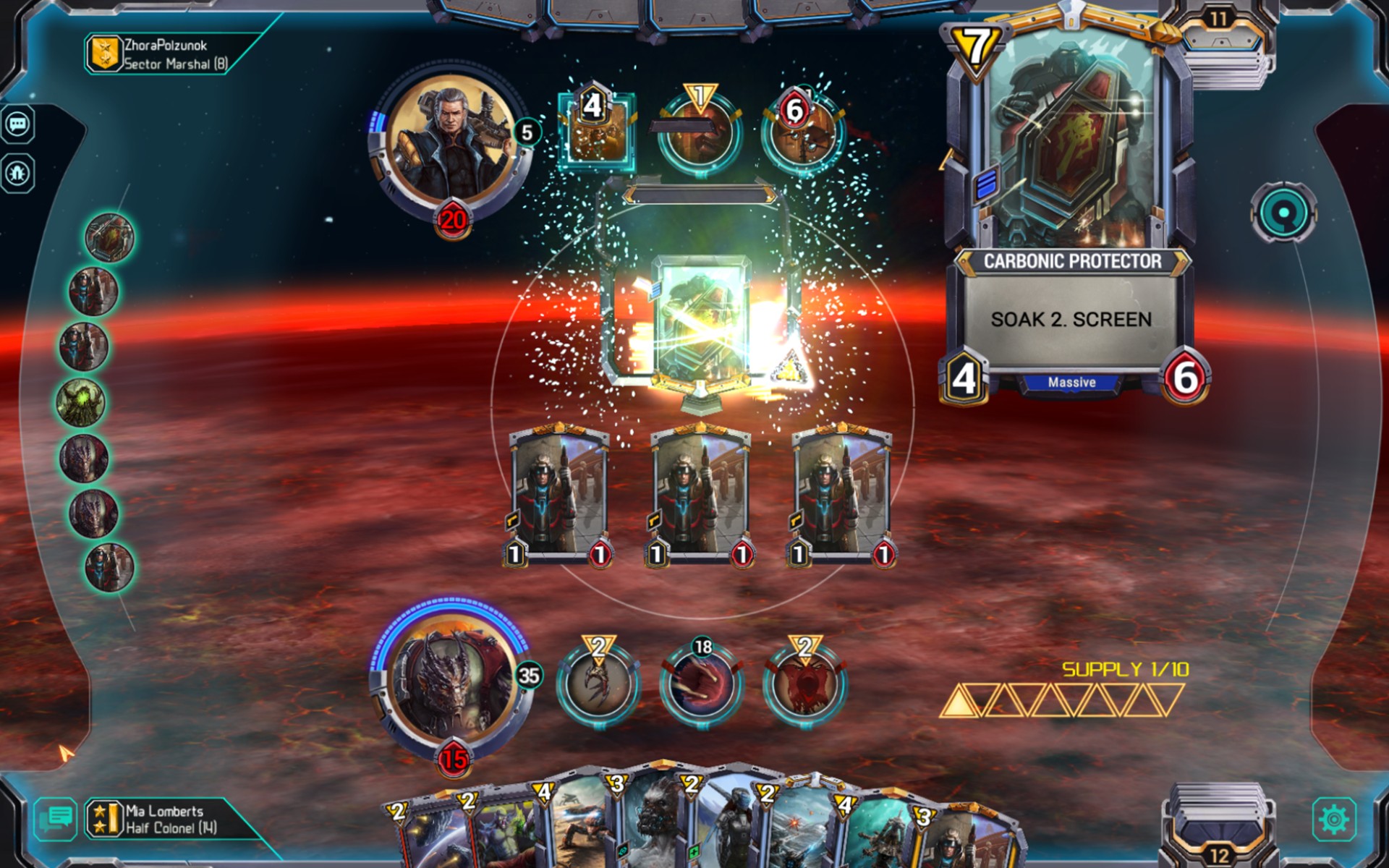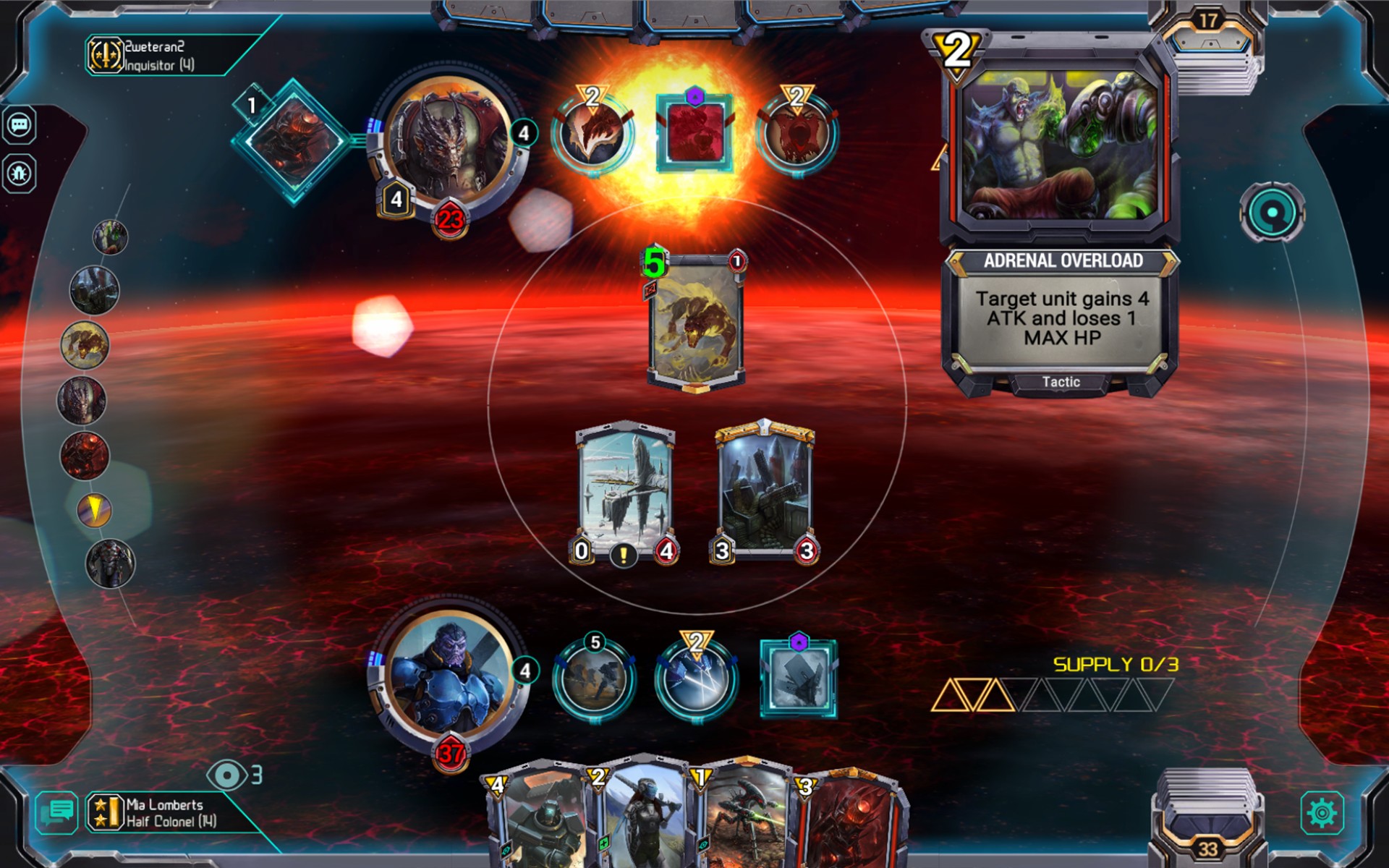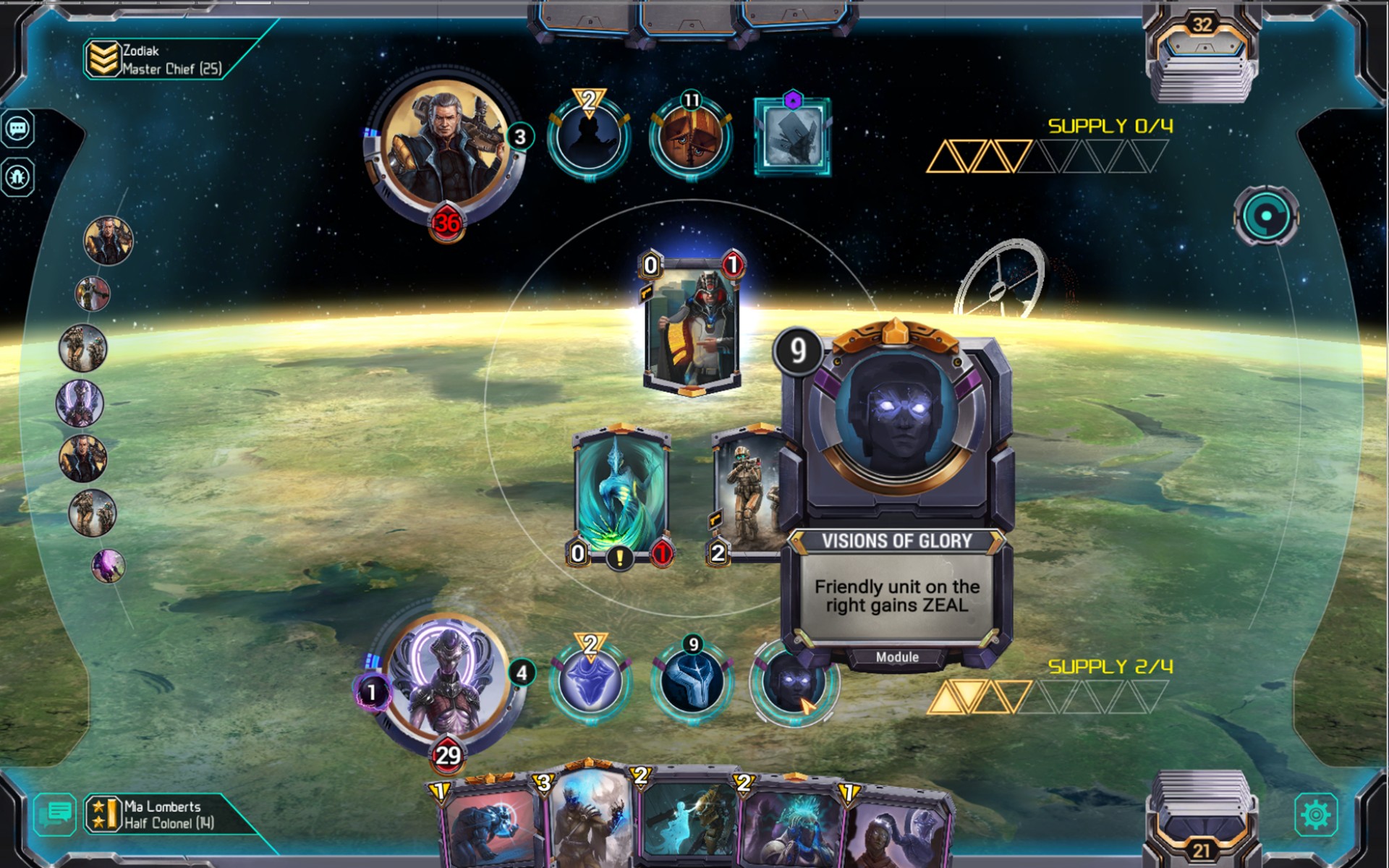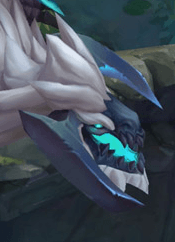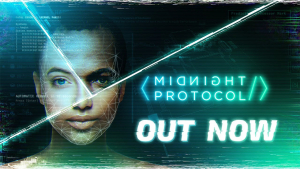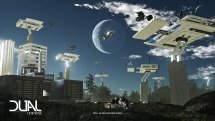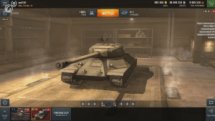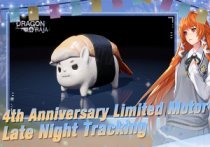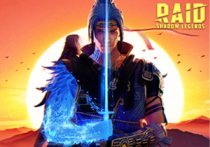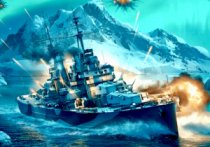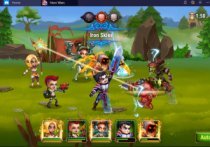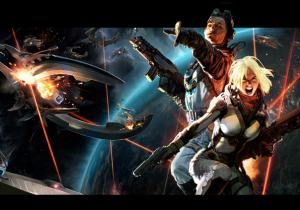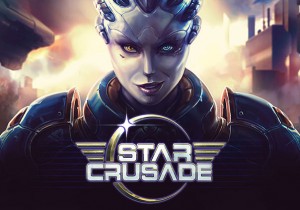Star Crusade: War for the Expanse Dev Interview
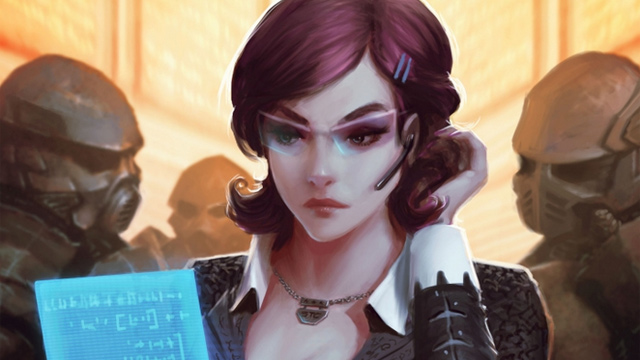
Answered by Alex Rechevskiy, Producer
Star Crusade has been in development on and off for at least four years. My brother Dimitri and I always created games to entertain each other growing up. The games we continued to play together into adulthood ended up being focused on strategy of all types, and that included collectible card games like Magic: The Gathering. When we finally got the chance to create a strategy game for others, we drew on a lot of our past experience of what Dimitri and I wanted to see in games. Together, we dreamed up a universe we ourselves would want to explore, and Dimitri populated it with all the different factions and their lore (tons and tons of lore) from scratch; though it’s certainly possible that our enjoyment of some of our personal favorite sci-fi universes like Warhammer 40,000 and Babylon 5 might’ve played a role!
That is a fair observation! The game is still in Early Access/Beta, so we have initially been focusing on other core gameplay issues. But as we come closer to full release, a lot of the focus will shift from “under the hood” details to the important immersion that we envisioned when we first designed Star Crusade. For example, we plan to add a comprehensive, story-driven tutorial and multiplayer faction-specific, story-rich missions – as well as narrative-advancing missions for players through monthly events.
By the way, we love comments like this! We will make a decision on how characters will unlock at full release based on just this kind of feedback.
Another really interesting idea. As the quantity of cards available in the game increases (we are already past 400), we may release separate boosters for specific expansions, or we may allow you to “customize” your booster prior to purchase, by selecting the focus of the pack — for instance, a faction — like Shan’Ti or Terran — or a type of unit, say a Mercenary. For the time being, you’ll always get at least one rare Elite in each booster, but yes, it’s absolutely possible to get lucky and find the rarest class of cards — Paragons — in the same booster as Elites (I love it when that happens!)
Please note that in the current version of the game, you can also earn free cards just for playing multiple matches over time as your Commanders gain levels.
We’ve got a lot of interesting ideas on the backlog for the game and how it will evolve in the future. We have big, big plans for this game!
We feel that Star Crusade is its own game, not just by virtue of its sci-fi setting, but also due to its unique gameplay features.
Take Commander Modules, for instance – each one gives your deck’s Commander a unique, persistent or activatable power, or a bonus that can be used throughout the match. You can equip up to three Modules per deck, and each faction will have its own unique modules. Right now, we have approximately 50 modules in the game, and we will be adding more with each new expansion. Modules add a whole new dimension of gameplay – we’ve found that players using the same faction and the same deck, but different Modules, will have a totally different experience and can access completely different strategies. Each faction’s deck can equip one, two, or three Modules at a time – equipping more Modules lets you access more powers, but leaving one or more Module slots empty lets you generate Energy more quickly.
And another new concept we’ve added to the game is the new resource — Energy. You earn Energy by destroying your opponent’s units and you spend Energy by powering some Modules or playing cards with the optional Energize ability.
In addition, we have Variable Deck Size – basically, you can have a deck as small as 25 cards, or as large as 40. Smaller decks develop faster and actually draw a bonus card on turn one. However, the size of your card deck will equal the size of your health pool, so building a smaller, faster deck makes you more vulnerable, while building a larger, slower deck gives you more survivability.
Variable Deck Size – along with some of our cards and Module powers – also plays a key role in reducing the influence of RNG in the game. While randomness is obviously a big part of card games, it can be frustrating to draw bad starting hands or have a bad run of luck mid-game. Variable Deck Size lets players purposely build smaller, faster decks (at a cost of being less survivable), and there are specific Modules that let players manipulate their own decks, adding specific types of cards directly to your hand to mitigate poor draws.
We’ve seen furious discussions among players as to whether a certain style of deck works better with 35 cards, or 36 cards – combine Variable Deck Sizes with multiple Modules and six different factions, and you have nearly limitless combinations and customizability. We really want players to be able to create decks that represent their own unique playstyle. Modules give players who theoretically have the same cards and faction a completely different play style because of the way the Module system alters your strategic choices. This also means that the chance of playing a “mirror match” – against an opponent with an exactly identical deck and set of Modules – is also reduced.
The overall focus of Star Crusade is to allow players to really craft their strategy to be unique to them, instead of based on a deck list someone else created. We find there is much more satisfaction when your deck defeats someone else’s because of your skillful play and deck design, instead of a random chance or because you followed someone else’s ideas.
We have daily missions that let players earn credits quickly, and ranked mode lets players compete for boosters and other prizes. We’ve also just had our first cash prize tournament and are planning on organizing many more. In the future, we will also add epic events that span a week or longer and have even bigger loot as rewards!
We’re always testing and tweaking our systems to make sure we have an experience that’s fun and balanced. For players who are having issues getting cards, we recommend going after events for more in-game credits, as well as playing regularly to level up your Commanders (and get free cards).
We have plans for a full single-player campaign that will tie together the lore and backgrounds of each faction. Can’t say much about it now, but we are very, very excited about sharing this with players in the future.
Yes! In fact, we plan to have a 2v2 co-op battle mode in the future. We love CCGs of all kinds, and one of the coolest things about duel-based CCGs is how mechanics change when you go from a one-on-one duel environment into a larger, team-based environment. In team-based environments, the pace of the game changes significantly and cards that never seemed all that useful become much more powerful.
With lots and lots and lots of testing and in-depth analytics. Yes, with so many modules, and the ability to equip more or fewer, there are a ton of deck combinations. Using our detailed analytics, we are aggressively pursuing strong game balance at this time, but we’re also not looking to have a meta that plateaus out. In so many competitive games, once players find the “best” strategy, deck, or character, the game boils down to everyone running the same top-tier stuff. It gets boring and stale, and that’s not what we want – so we’re constantly involved directly with the player community, soliciting feedback on what seems too powerful or too weak, and we plan to continue doing this after launch. We want a continuously vibrant and competitive metagame.
Yes, yes, and yes. You can also gain them from regular play as your Commander levels up — each commander has two unlockable Modules, with two more coming soon!
We’ve tried to theme each faction so that their mechanics reflect their lore and flavor. The Terrans, for instance, are our newbie faction and have basic, easy-to-understand units, but we’ve designed their cards and abilities to reflect an infantry-based faction with many small units whose bonuses and powers can have a multiplicative effect if enough can survive long enough on the board.
The Annunaki are powerful, mind-controlling psychics who build up Psychic Charges to power their abilities.
The Shan’ti are our alien race of amoral mad scientists, and their primary power is mutation – they’ll mutate both their enemies’ units and their own to unlock bizarre new powers and combinations.
The Hajir-Gog – the creations of the Shan’Ti – are brutal warlords who attack so ferociously that their most devastating powers frequently damage their own units as well as their foes.
The Hierarchy is our cyborg faction, and uses its powerful repair tech to build its defenses – the commander Tel’Machus begins his career with the Restore Module that triggers many combos.
The Consortium are the merchants of Star Crusade, and they use their ability to manipulate Credits – an in-game modifier that can affect many of their cards – to tilt the game in their favor.
In any case, we’ve focused on making a game with tons of depth, variety, and customization. As I mentioned, this game is the product of two brothers’ imaginations – and both he and I frequent the Steam forums in search for good player feedback. Please download the game from Steam and try it out – we’re very interested to hear what you think!
Thanks so much for your time! I had the chance to team up with the second half of the Gaming Tag Team Champions of the World, Bottom Tier, to test out the Star Crusade early access as well. Check out our video below!
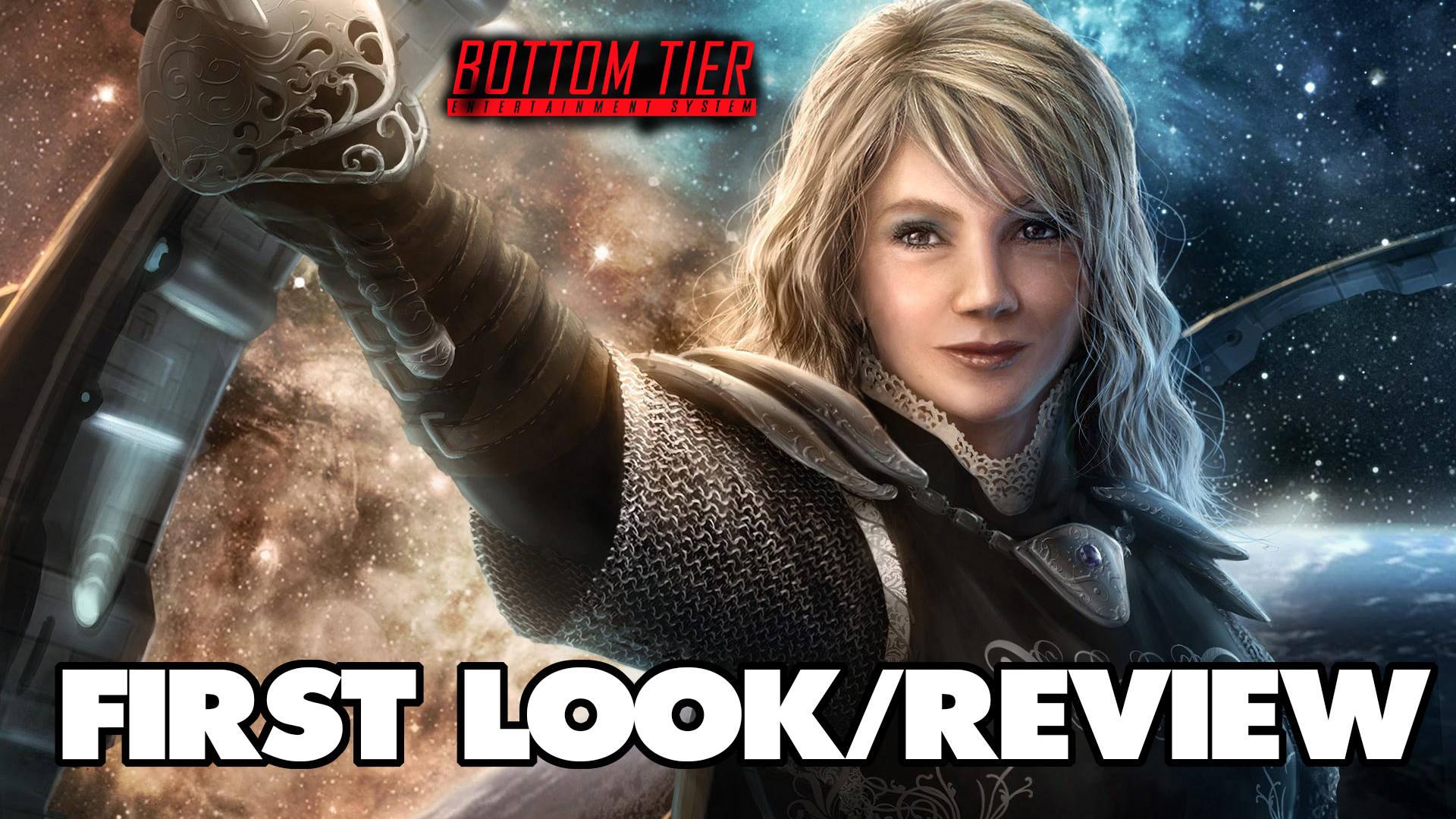
Articles You May Enjoy
- Cuisine Royale Now Available on Xbox (On Xbox Insider Hub)
- Darkflow Software and Gaijin Entertainment announced today that their MMO Shooter Cuisine Royale is coming to Xbox One.
- Amsgames Adds Golden Black to Kickstarter
- Golden Black is an ambitious RTS MMO game which proposes a unique gaming experience that mixes classic RTS game mechanisms with MMO, MOBA, RP...


